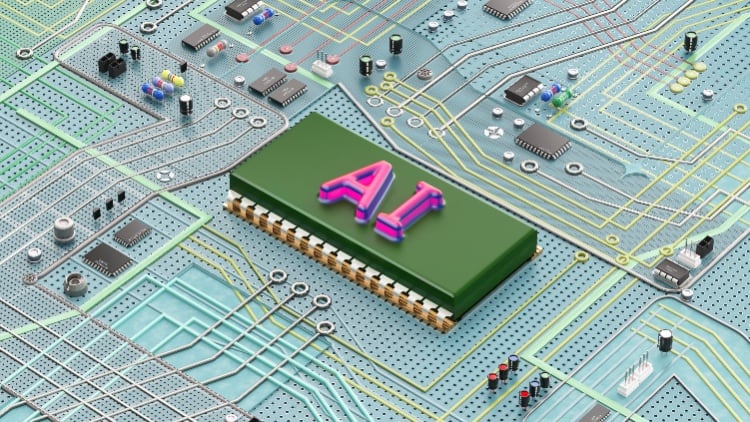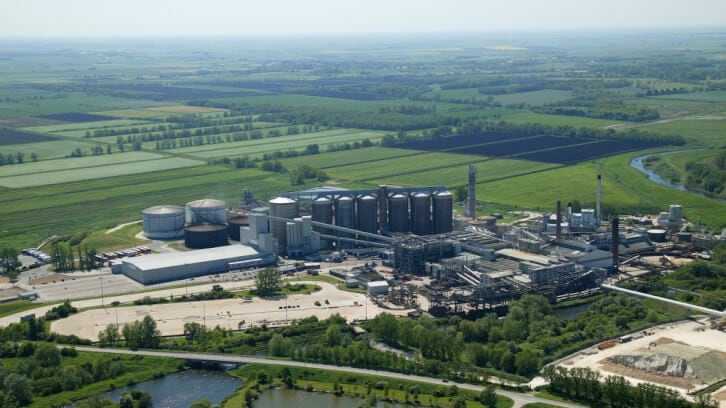Driverless delivery vans, robotic couriers, drones delivering packages, automated pickers and shelf stackers, self-driving forklift trucks, and self-serve checkouts, the list of potential applications for AI goes on. It is the next industrial revolution, with seemingly no limit to the capabilities of AI (are self-flying articulated lorries in touching distance?). It is an exciting time, but do workers and unions feel the same?
For many businesses, radically changes to the workplace may seem a long way off – the most recent King’s Speech predicted that it will be closer to 2030 before entirely automated grocery delivery vehicles will be on UK roads, and a lot of other technology is still in its development and testing phase.
In some cases this may have led to leaders not thinking about how AI may impact their workforce in the future. These instances will have been exacerbated by a period of economic crisis, with low levels of growth and forever shifting political agendas impacting operations. In this climate, concerns about technology that is 5-10 years away from being available may not be at the forefront of leaders’ minds.
However, we need only look across to businesses in industries significantly impacted by climate change targets set some years ago, that are now decarbonising their operations in a short space of time, to realise that these issues need consideration now. The media reports that this has caused wide-spread workforce unrest, and has been a catalyst for industrial action, borne out of fear of job losses, and insufficient time to re-skill workers to re-enter the job market. The financial impact this unrest will have on those businesses will be significant, and the long-term effect on reputation, worker engagement and employee and industrial relations is unquantifiable.
AI, compliance and the future of work
From a legal perspective, as long as an employer properly consults and (where applicable) negotiates changes not already permitted under a worker’s contract, protects their workers’ privacy rights, and ensures robots do not discriminate, there is little, legally, preventing employers introducing new technology. Indeed, subject to any express contractual term limiting its effect, employees have an implied contractual duty requiring them to adapt to new ways of working.
While compliance is important, it is not employment laws that will have the biggest impact. The potential changes and their consequences will cause significant concern for workers and their trade unions which could have a material and lasting effect on employee and industrial relations. This is what has brought about unrest and industrial action.
The fear is there will be fewer jobs, and certain professions will disappear altogether – remember there were actual roles called ‘computers’ before electronic computers existed. There is also sometimes an apprehension towards retraining when having spent years learning a skilled trade.
But there are positives too. Declining birth rates and tighter immigration policies mean there are fewer people available to recruit. AI may help fill these skill gaps without impacting employment opportunities (think fruit pickers). Experts say using AI in hazardous environments has the potential to improve workplace safety. AI can also perform monotonous mundane tasks that nobody likes doing.
However, these positives also come with fear and are not without challenge. If monotonous tasks disappear, does that mean we are going to have to do more demanding, complex and stressful tasks without the mental respite of doing that easy task which gives us a break?
Will there be more people available for work due to a reduction in jobs, meaning employers can pay less due to saturation of the candidate market? And will there be enough time and capability to reskill displaced workers?
These questions are firmly in the minds of workers and trade unions right now. This is evidenced by policies, shaped by trade unions, which Labour intends to progress if it forms the next Government. These policies include industry-level collective bargaining agreements (known as Fair Pay Agreements) which not only set rules on matters such as pay, but also on the implementation and deployment of new technology. Another policy would require employers to obtain the agreement of trade unions or workplace representatives to implement certain technology (for example, any with ‘surveillance’ capabilities).
Similarly, in Europe and elsewhere, new laws are being considered which would, among other controls, require an employer to seek agreement with workers and their representatives on the introduction of new technology in the workplace.
What should employers do now?
Workers need to be brought on the AI journey – this means planning for change now, even if it is a long way off. Without a plan, unrest is inevitable both now (as workers look toward what is happening elsewhere, with fear) and in the future (when change is introduced without time to adapt). If a trade union is recognised, it is important to obtain their input to ensure they are also engaged.
Any plan should ensure transition is handled sensitively and creatively, to engender trust within the workforce, and their representatives. Thought should be given to the tasks and skills that AI may replace, the time it will take to re-skill workers and the proactive management of potential workforce reductions. Ultimately, it comes back to the old adage – fail to plan, plan to fail.




